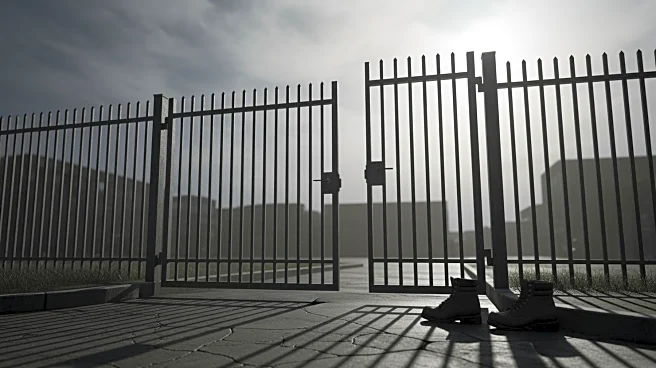What's Happening?
The U.S. Senate has recessed, prolonging the second-longest government shutdown in history. The Senate failed to advance a bill to fund essential workers, leaving many without pay. The shutdown, now in its
24th day, has led to missed paychecks for military personnel and immigration enforcement agents. The impasse centers on disagreements over health care subsidies, with Democrats demanding extensions to Affordable Care Act subsidies and reversals of Medicaid cuts. Republicans argue these issues should be addressed separately. The shutdown has caused disruptions in services, including potential delays in air travel due to unpaid air traffic controllers.
Why It's Important?
The ongoing shutdown has significant implications for federal employees and the public. Essential workers, including military and air traffic controllers, are working without pay, which could lead to reduced morale and service disruptions. The political stalemate highlights deep divisions over health care policy, with potential long-term impacts on the Affordable Care Act and Medicaid. The shutdown also poses economic risks, as prolonged government closures can slow economic growth and disrupt public services. The situation underscores the challenges of reaching bipartisan agreements on budgetary and policy issues.
What's Next?
As the Senate recesses, the shutdown is expected to continue into the following week. Lawmakers are exploring options for temporary funding to reopen the government and negotiate full-year budgets. The upcoming open enrollment for the Affordable Care Act adds urgency to resolving health care subsidy issues. The shutdown's impact on air travel and other services may increase pressure on Congress to reach a resolution. Political leaders will need to navigate complex negotiations to address both immediate funding needs and broader policy disagreements.








